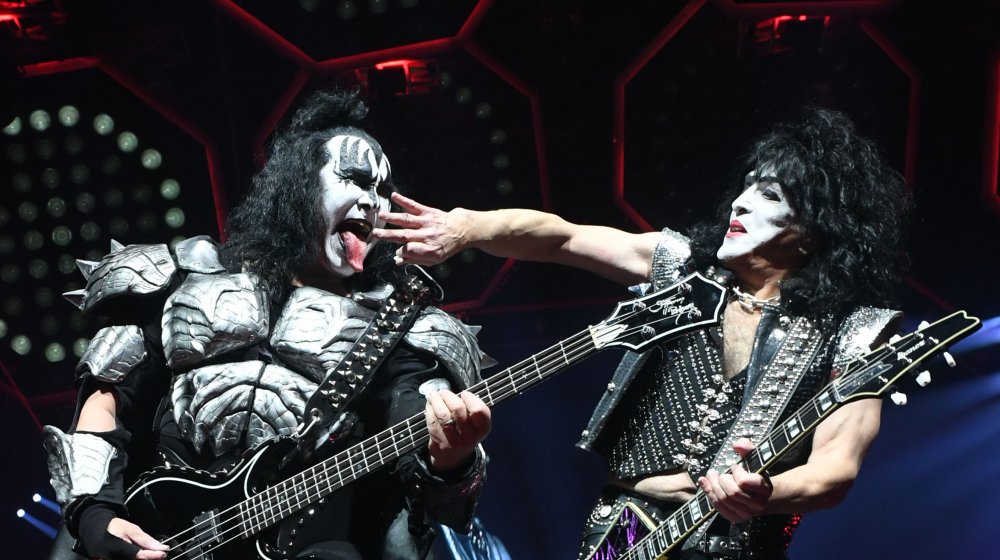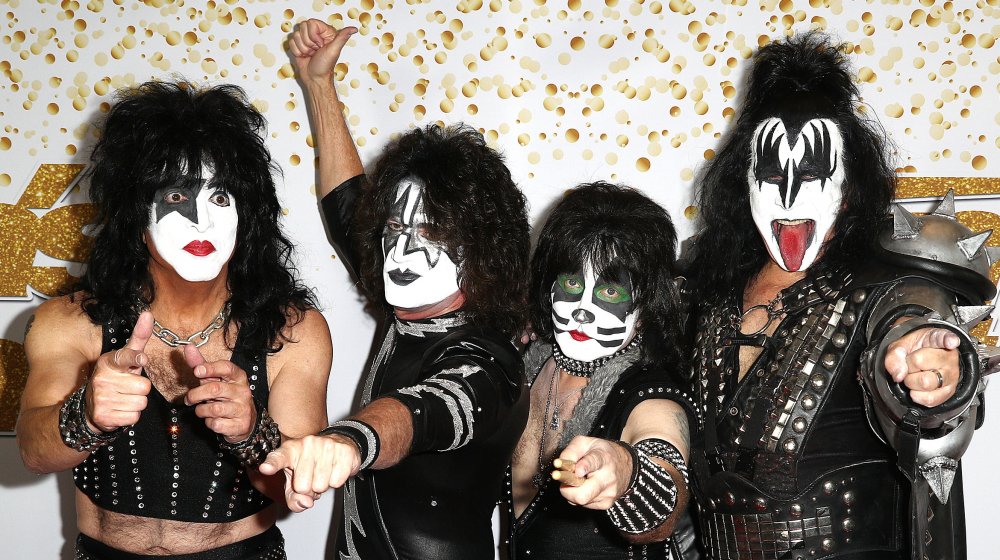The Real Reason KISS Started Wearing Makeup
KISS: They're legends. They rock and roll all night, while still finding the energy to party every day. At some point or another, whether you know it or not, you've pulled the trigger of their love gun. Since 1973, this powerhouse quartet has taken many forms. They've broken up, reunited, and Frankensteined themselves back together more times than an Incredible Crash Test Dummy action figure.
Any group that manages to retain its cultural staying power for nearly fifty years needs a gimmick. The Beatles had musical talent, and the Rolling Stones keep filling seats with their ability to chemically reanimate Keith Richards, but KISS went with iconography. Their makeup has become more famous than the musicians who wear it, and has led to some confusion. The dad-from-Footloose contingent of the population has pointed to the look as an indicator of the band's pact with dark, otherworldly forces, despite the group's contributions to multiple charities and vocal, decades-strong criticism of amusement park phantoms. What's the real story behind the gallons of facepaint that have gone into keeping KISS marketable over the years?
KISS and makeup
As Gene Simmons tells it, the whole thing came down to machismo. In an interview dug up by Yahoo News, the bassist and KISS Koffin tycoon explained the glam rock scene in the '70s. "At the same time that we were forming in New York, there was a very big glitter scene, where boys were basically acting like girls... all the skinny little guys, hairless boys. Well, we were more like football players; all of us were over 6 feet tall, and it just wasn't convincing! The very first pictures we took when the band first got together, we looked like drag queens."
So the members of KISS did what anyone does when they want to distance themselves from the drag scene: they put on a bunch of makeup and rhinestones. Referring to how much easier it would have been for the group to go up in jeans and tee shirts, Simmons stated "...it just wasn't us. Getting up onstage was almost a holy place for us, like church, so being onstage looking like a bum wasn't my idea of respect. That's where the makeup and dressing up came in."

